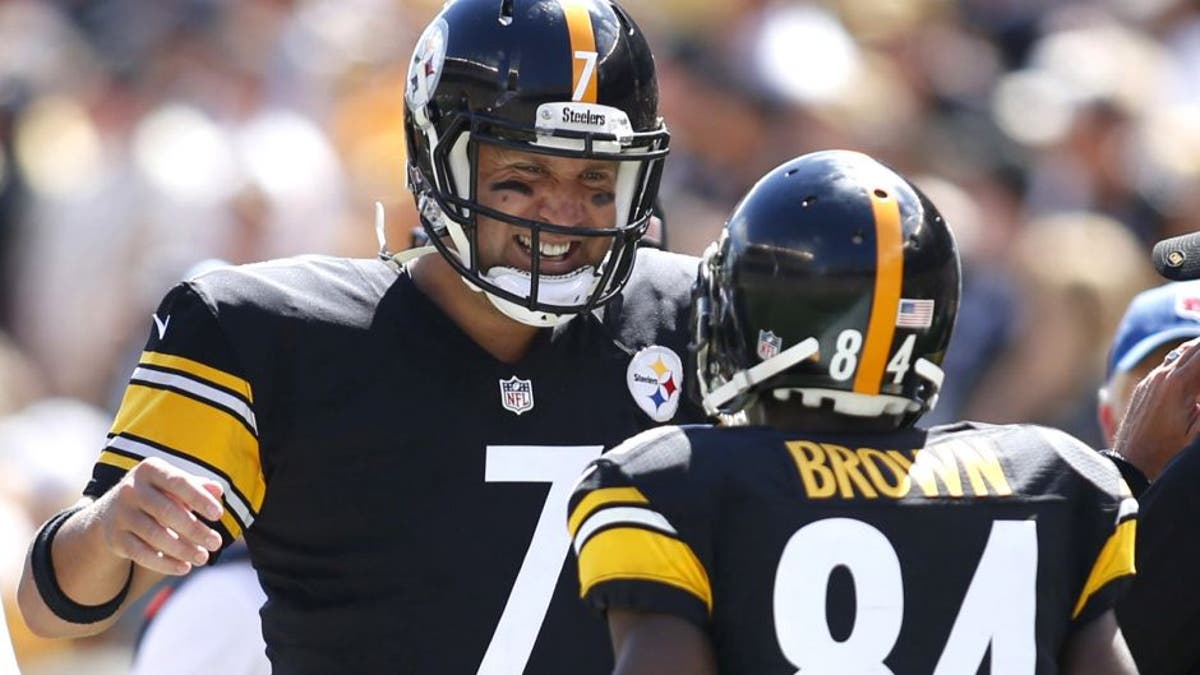
Sep 7, 2014; Pittsburgh, PA, USA; Pittsburgh Steelers quarterback Ben Roethlisberger (7) and wide receiver Antonio Brown (84) celebrate a touchdown against the Cleveland Browns during the second quarter at Heinz Field. Mandatory Credit: Charles LeClaire-USA TODAY Sports
Professional and college sports teams think they have found a cutting-edge advantage hidden in one of the most basic nutrients: vitamin D.
With millions of dollars at stake, elite teams are tracking player health more precisely than ever to make sure their athletes keep playing. As part of this push, teams in all U.S. major leagues, some college athletic departments and the U.S. men’s and women’s soccer teams have started monitoring players’ vitamin D levels and intake. A few are even recommending more time in the sun, which helps the body produce the nutrient.
The focus on vitamin D is part of a growing emphasis on player wellness, from proper sleep to carefully planned nutrition, to maximize performance. Team officials also are acting on eye-opening research that suggests vitamin D deficiency might increase an athlete’s risk of injury.
A study of the Pittsburgh Steelers published in 2015 in the American Journal of Sports Medicine was especially striking. It found that vitamin D levels were significantly lower in players with at least one bone fracture. Players who were released during the preseason due to injury or poor performance also had significantly lower D levels than those who made the team, the study found.
A 2011 study of the New York Giants, presented at a meeting of the American Orthopaedic Society for Sports Medicine, found an association between low vitamin D levels and injuries. Team officials launched that study to see whether levels of vitamin D, a hot research topic at the time, might be connected to soft-tissue injuries such as muscle strains, says Michael Shindle, the study’s lead researcher.
Both studies were small—fewer than 100 players each. But they were intriguing enough that researchers plan to do a larger study with about 320 NFL players, says Mark Duca, a Steelers team physician and co-author on the Pittsburgh study.
“You can’t draw a definitive conclusion” that low vitamin D levels increase fracture risk, Dr. Duca says. “But it certainly piques our interest, particularly in a violent contact sport like football.”








































